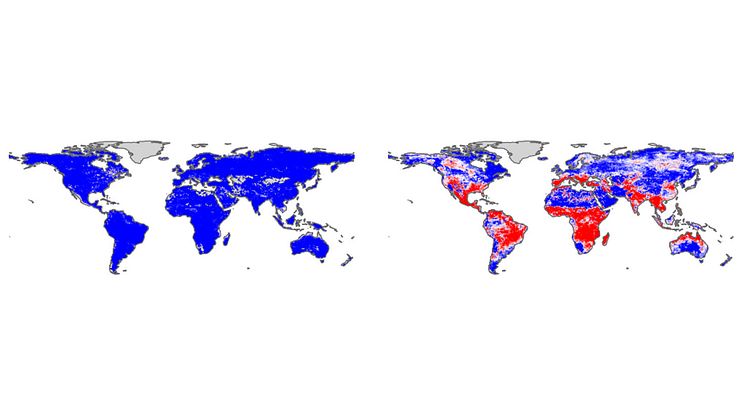
Press release -
Deaths in heatwaves are predictable
More than 100,000 people are estimated to have died as a result of extreme heat during the summers of 2022 and 2023 in Europe. A new study shows that it is possible to make accurate forecasts of heat-related mortality about a week in advance. The forecasts could be used in heat warnings to protect vulnerable groups.
High temperatures can cause serious health problems and even death, especially among elderly people and people with underlying diseases. The extremely hot summers of 2022 and 2023 are estimated to have caused 60,000 and 50,000 heat-related deaths in Europe respectively. To protect people, more reliable forecasts and effective warning systems are needed.
A new study shows that it is possible to predict heat-related deaths in Europe. The researchers first developed the forecasting system itself and then tested how well it worked.
“We tested it on Europe’s extremely hot summers in 2022 and 2023 and were able to make forecasts about a week in advance,” says Emma Holmberg, the study’s first author. “In the past, warning systems have generally been based on temperature alone. Our forecasting system takes both meteorological data and health statistics into account, which enables us to more accurately predict how heat may affect deaths.”
Based on health data from across Europe
The researchers estimated mortality by developing a statistical model based on temperature and mortality data from across Europe. For each district included in the study, the relationship between temperature and mortality was calculated, making it possible to take into account regional differences in climate and the vulnerability of the population to heat. The statistical model was then combined with temperature forecasts, allowing the researchers to predict heat-related mortality.
High accuracy at both moderate and high temperatures
In most countries, the forecasts worked very well when the researchers predicted mortality in moderate summer temperatures. This temperature range is close to the ‘minimum lethal temperature’ – the level at which the body is exposed to the least stress from heat.
“It’s easier to make predictions at moderate temperatures. At around 20 degrees Celsius in Western Europe, small variations in temperature have little impact on mortality, which means that minor errors in the forecasts do not significantly affect our mortality forecasts,” says Holmberg.
One thing that surprised the researchers was that the forecasts were accurate even in the very hottest regions, such as the Iberian Peninsula during the record summer of 2022.
“Without a forecast, the average from previous years is the best way to estimate heat. However, because the summers of 2022 and 2023 were exceptionally warm, the forecasts were significantly more accurate than the average from previous years.”
Preparedness can protect vulnerable groups
Due to climate change, summers like 2022 will become increasingly common. In areas with high heat-related mortality, forecasting could be crucial for early warning and timely intervention.
“By including heat-related mortality in heat warnings, authorities can focus resources where they are needed, especially on the elderly, sick or other vulnerable groups,” Holmberg concludes.
Article
Holmberg et al; (2025) Skillful heat-related mortality forecasting during recent deadly European summers. Proc. Natl. Acad. Sci. U.S.A. DOI: 10.1073/pnas.2426516122
For more information:
Emma Holmberg, Postdoc in meteorology, Department of Earth Sciences, Uppsala University,
Phone: +46 70-067 03 92
E-mail: emma.holmberg@geo.uu.se
Topics
Categories
Founded in 1477, Uppsala University is the oldest university in Sweden. With more than 50,000 students and 7,500 employees in Uppsala and Visby, we are a broad university with research in social sciences, humanities, technology, natural sciences, medicine and pharmacology. Our mission is to conduct education and research of the highest quality and relevance to society on a long-term basis. Uppsala University is regularly ranked among the world’s top universities. www.uu.se


